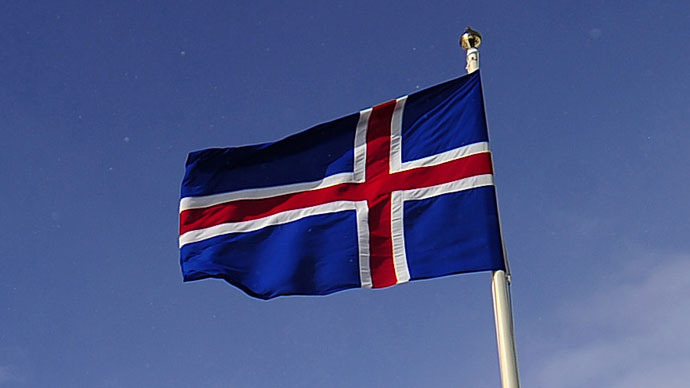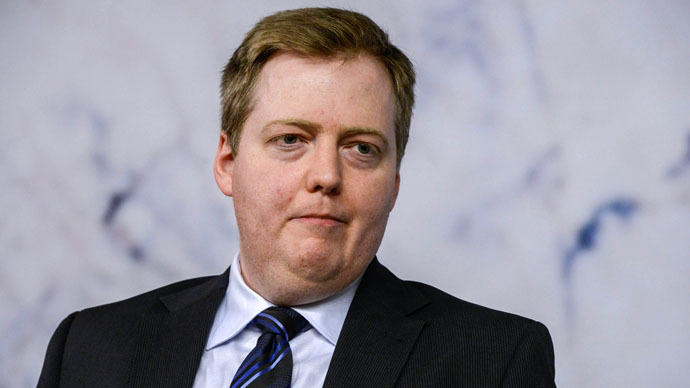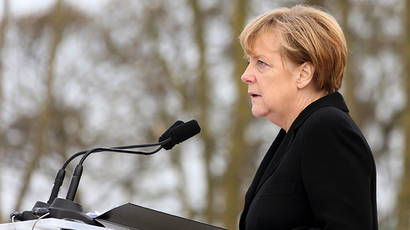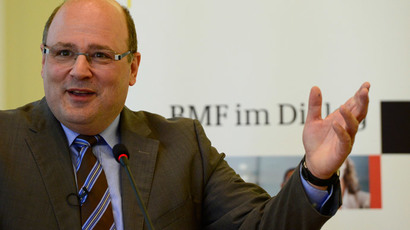Iceland considers withdrawing EU application - PM

Iceland is planning to formally withdraw its EU application, the country’s prime minister told the national radio station. Reykjavik also wants to lift capitals controls imposed on Iceland by Brussels after a financial crisis hit the country in 2008.
Despite expected public protests, Iceland is going to make a second attempt to withdraw its application to become a member state of the European Union, Prime Minister Sigmundur Davið Gunnlaugsson said in an interview with Icelandic radio station Bylgjan.
“Participating in EU talks isn’t really valid anymore,” PM Gunnlaugsson said as quoted by the Reykjavík Grapevine.
News Now Iceland to Withdraw EU Applicatio... https://t.co/8TgbfsuXwh via @SputnikNewsUK | https://t.co/ZcQhTv2Lappic.twitter.com/BmZ7EEyspr
— Jm Bob (@stijbob) January 6, 2015
“Both due to changes in the European Union and because it’s not in line with the policies of the ruling government to accept everything that the last government was willing to accept. Because of that, we’re back at square one,” he said on Sunday morning.
The EU accession negotiations are “at square one as all the work on it that had been carried out before was in fact obsolete,” Iceland’s mbl.is media outlet quoted the country’s PM as saying.

Iceland applied for EU membership in July 2009, at a time when the global economic crisis was unraveling. By February 2010, the European Commission produced a favorable answer and accession negotiations began in July the same year.
The negotiations came to a stalemate in April 2013, when the election in Iceland was won by the centrist Progress Party, and the conservative Independence Party. When Progress Party’s Gunnlaugsson became prime minister, he froze negotiations with the EU in May 2013, largely because of the fish catch quotas insisted on by Brussels – something Iceland’s fishing industry would never agree to.
Today Iceland, with its population of about 325,000, has EU 'candidate country' status and is a member of the European Economic Area (EEA), the European Free Trade Association (EFTA), Schengen area, and is an EU partner promoting cooperation in northern Europe – all this without voting rights in the EU. Two thirds of Iceland's foreign trade is conducted with EU member states.

The first attempt to disengage with Brussels in 2014 ended in public protests and calls to hold a national referendum on the issue. Nevertheless, an anti-EU membership resolution will shortly be presented to Iceland’s parliament.
Icelandic Foreign Minister Gunnar Bragi Sveinsson told Vísir he would like to close the EU issue as soon as possible, stressing that the public protests which followed the first attempt hadn’t affected his negative position on EU membership.
Eirikur Bergmann, a professor of political science from the Centre for European Studies at Bifrost University told RT that Iceland is divided down the middle on the issue and there is no easy way out.
“This government has said they won’t put it to a referendum. Probably they are afraid of the wrong results, for their policies, so I would predict that this stalemate that exists in Iceland will continue,” he said.
Nigel Farage, leader of Britain’s right-wing UK Independence Party (UKIP) and renowned Euroskeptic, commented on Reykjavik’s move, saying: “This move by Icelandic authorities and the increasing Mediterranean opposition to the EU shows that the idea of the inevitability of EU integration has been smashed.”
READ MORE: UKIP’s Nigel Farage voted ‘Briton of the Year’
“More and more people throughout Europe either no longer wish to join the EU or, as in Greece, to leave the euro currency all together,” Farage said.
In the UKIP leader’s opinion, EU member states, such as Greece and other Mediterranean countries that “are caught inside the straightjacket of an unsuitable euro currency and unsympathetic political union dominated by Germany” should follow the Icelandic example.
“Greece should decouple from the euro, devalue its currency and grow its way back to prosperity with exports and tourism,” Farage said.
READ MORE: EU funding row sparks huge surge in UKIP support – poll














